Despite weak spots, contractors see decent prospects in West Africa offshore Angola, Ghana
By Jerry Greenberg, contributing editor
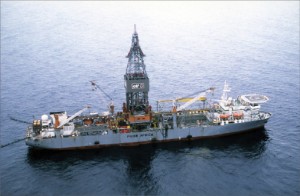
Despite a general oversupply of offshore rigs globally that is affecting utilization and dayrates in numerous markets, the West Africa region appears to be holding its own with consistent levels of E&P activity. The jackup market here is being supported, to a degree, by Transocean, which has seven cold-stacked jackups in Gabon. As a result, Transocean and other contractors are working their jackups – mainly on the spot market – at profitable dayrates, albeit in some cases at about half the 2009 rate.
Much of the E&P work in progress and pending is offshore Angola, with more than a half-dozen projects expected to come on stream by 2012. Nigeria, already viewed as a challenging country, is working on legislation that could drive up the cost of drilling operations there.
A positive sign is TGS-NOPEC chartering an additional seismic vessel; the company anticipates acquiring more than 10,000 sq km of 3D seismic with the vessel. It has acquired over 21,000 sq km of 3D data offshore West Africa in the past three years.
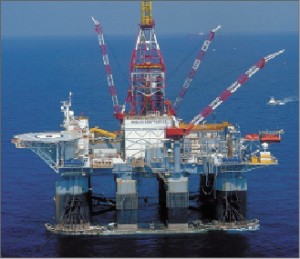
GOM EFFECTS
Drilling contractors are understandably concerned about fallout from the Gulf of Mexico drilling moratorium as rigs could be mobilized out and into other markets, potentially taking work from rigs already in those area. As of mid-August, only Diamond Offshore had mobilized floaters out of the Gulf, although several floaters that were already planning to leave the Gulf could depart sooner due to the moratorium.
One of those Diamond rigs is the ultra-deepwater semisubmersible Ocean Confidence, going to Congo for a new contract with Murphy. The rig had been on contract with Murphy in the Gulf, but that was suspended temporarily and will restart when the rig returns to the Gulf, estimated for Q1 2011. The Congo contract dayrate is about $390,000, compared with about $510,000 for the Gulf.
“The Ocean Confidence will probably return to the Gulf in February or March 2011, assuming the moratorium doesn’t extend beyond this November or December,” said Les Van Dyke, director of investor relations for Diamond Offshore. “I think West Africa is a good area to be in if activity doesn’t pick up (in the Gulf).”

“There are a number of inquiries but no large tenders outstanding,” Kevin Robert, senior vice president, marketing & business development for Pride International, said of the West African floater market. “There are a number of one-well or two-well or six-month requirements, and there are a couple of projects in the pre-qualification stage.” Pride operates one jackup, one semisubmersible and two drillships in West Africa. The 1,000-ft rated Pride South Seas semi is also stacked in South Africa, with few prospects, and Pride expects it will be stacked through 2011.
FLOATER DAYRATES LOWER
Two 10,000-ft rated drillships, Pride Africa and Pride Angola, have been working in the region since the late-1990s in Block 17 offshore Angola. The Pride Africa will complete its present contract for Total in December 2011, and Pride is already firming up a three-year contract with that operator to drill development wells for the CLOV (Cravo, Lirio, Orquidea and Violeta fields) project. The rig’s dayrate will increase from about $193,000 to about $370,000 under the new charter, which will begin in February 2012.
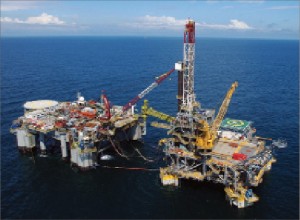
The Pride Angola is also contracted to Total but at a dayrate of about $466,000 under a contract that runs through July 2013. The dayrate disparity illustrates the dramatic difference in the markets at the time the contracts were negotiated. Pride Angola’s contract was negotiated in late 2008/early 2009, when the market was much stronger, according to Mr Robert, while the Pride Africa contract has been in place since 2004. The five-year contract had a two-year extension option, which Total exercised.
Offshore Angola, dayrates for mid-water depth rigs are in the low to mid-$300s. ExxonMobil, for example, will be working Transocean’s semisubmersible GSF Celtic Sea at about $320,000/day under a three-year contract beginning in February 2011. The Transocean Richardson semisubmersible is contracted to Chevron Angola at $340,000/day under a 10-month contract due to expire in March 2011.
Atwood Oceanics’ semisubmersible Atwood Hunter is enjoying a stronger dayrate under a rig-sharing agreement between Noble Energy and Kosmos Energy Ghana, between $538,000 and $545,000. Noble works the rig offshore Equatorial Guinea while Kosmos works offshore Ghana. The contract began in 2009 and runs until October 2012, with a one-year option.

“The (Noble/Kosmos) contract was signed when there was more strength in the market,” said Geoffrey Wagner, director of marketing & business development for Atwood. “There is still strength in this market, but not at those levels.”
“I think (a dayrate) in the $300s is not unreasonable,” Mr Wagner continued, “but I wouldn’t push below $300,000.”
Mr Robert with Pride believes West Africa still is a good market, with exploration plays and subsequent strong development work. “(Operators) are turning Ghana into a success story,” he said. “It’s looking very promising, and a lot of that is in 5,000 to 6,000 ft of water.”
He believes that dayrates could fall below $300,000 for mid-water depth semisubmersibles. “Globally, the 5,000-ft moored semi market, which is where our Pride South Pacific operates, has seen dayrates move from $550,000 to $250,000,” he said.
“Current (contract) terms have shortened from three years to six months. Anything coming up in West Africa now is determined against that gauge,” Mr Robert continued. “I don’t see a lot of programs for moored semis much longer than six to 12 months, and more likely two to four months.”
The Pride South Pacific is contracted to Noble Energy at a rate of about $320,000.
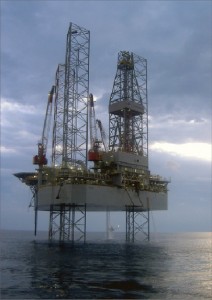
“I think we will be able to keep the (Pride South Pacific) busy throughout 2011,” Mr Robert said. “There is enough opportunity in the West and South African market. One benefit of a 90-day contract term is, unless you already have a rig in a particular market, it’s difficult to mobilize a rig for a short-duration contract. It dissuades competition by making it difficult to move rigs between areas.”
Mr Robert noted, however, that as the mid-water depth market has softened, higher-specification rigs tend to take whatever jobs are available, putting further pressure on lower-specification rigs.
Terry Bonno, vice president of marketing for Transocean, said during the company’s Q2 2010 earnings conference call that the global ultra-deepwater market remains oversupplied in the near term and the oversupply situation is being compounded by the uncertainties of the Gulf of Mexico drilling moratorium.
Still, Ms Bonno said, “Areas of opportunity coming to market exist in East Africa, Gabon and Ghana.”
Future ultra-deepwater demand will continue to grow based on recent successes in Angola and Mozambique, among other areas, she said. The Transocean Richardson contract with Chevron was recently extended in Angola to March 2011 at $340,000/day. The contractor also agreed to a two-month extension to September 2010 for the GSF 135, contracted to Total at $249,000/day.
Like Mr Robert, Ms Bonno was concerned that oversupplied deepwater rigs could begin competing in the mid-water depth market. “We remain optimistic that oil price stability will continue to fuel more projects,” she said during the conference call. “However, we are concerned with the oversupply of deepwater units that could compete in the mid-water market.”
Atwood operates the Seahawk, a semisubmersible tender-assisted rig, in Equatorial Guinea that is contracted to HESS until August 2010. It has been working for HESS since 2006, drilling development wells from two tension-leg platforms (TLP) in the Okume field, one in about 900 ft of water and the other in around 1,650 ft.
“We are seeking opportunities for the Seahawk,” Mr Wagner said, “but that market is much more project-driven (than the exploration market).”

MIXED SIGNALS FOR JACKUP MARKET
The jackup situation in West Africa is weak, with utilization in August at about 62%, which translated into only 20 of 32 units working. Included in the 12 idle jackups are seven cold-stacked Transocean units. It’s a mixed bag as far as drilling contractors’ marketing philosophies are concerned.
For example, the Atwood Beacon 400-ft independent-leg jackup was contracted for one well offshore the Ivory Coast for Edison Oil and Gas of Italy at a dayrate of $115,000. The rig previously worked for HESS offshore Equatorial Guinea and will mobilize to Suriname/Guyana for Murphy in October.
“There was more opportunity in Suriname,” Mr Wagner said. “This is a significant program that takes us to May 2011.We could stay well to well in West Africa, but now we have more certainty with the contract term and the pricing. The dayrate is about the same as in West Africa. The longer-term contract is the primary reason for moving.”
Pride believes the West African jackup market offers plenty of opportunities to keep its Pride Cabinda busy at least through 2011, and the contractor may increase the number of jackups there.
“I think the Pride Cabinda will continue moving up and down the West African coast working well to well,” Mr Robert said. Even with utilization falling below 60%, “we’re able to keep the Cabinda working. I expect the rig to stay in West Africa through (2011). Even with the number of stacked jackups in the region, if we continue to see an uptick in utilization, we could potentially be in a position to add a second jackup rig there (in 2011).”
The Pride Cabinda was working for Total offshore Cameroon during the summer at a dayrate of about $88,000. Mr Robert expects the rig to continue working at similar dayrates.
Despite the low jackup rig utilization rate, Transocean and ExxonMobil agreed on a two-year extension of the GSF Baltic at $100,000/day to June 2012. The rig had been working on a well-to-well type extension. The GSF High Island VII also obtained a three-month extension with Afren Energy at about $88,000, up from $84,000, running to the end of this year. Additionally, the contractor and Total agreed to a six-well contract extension for the Trident VIII.

Hercules Offshore is in a position with one jackup, Hercules 156, warm-stacked in Gabon since November 2008 and a second jackup, Hercules 185, in Gabon on standby due to payment issues after working in Angola. Both are 150-ft independent-leg cantilever rigs.
John Rynd, Hercules president and CEO, remains optimistic that these rigs will find work. “We are marketing the Hercules 185 up and down the coast,” he said. “We are hopeful that we would secure a contract to commence in the fourth quarter this year.”
“We are also pursuing a number of opportunities for the Hercules 156 with small indigenous companies, particularly in Nigeria,” he added.
Mr Rynd said there are prospects for jackups in Nigeria, as well as Cameroon, Gabon and Angola. “It’s difficult to say when jackup utilization will begin improving because of continued delays, principally driven by Nigeria.
“Nigeria is becoming more difficult than it has been,” he continued, “with new local content rules and bureaucratic delays for drilling programs.”

NIGERIAN LAWS
The Nigerian National Petroleum Corp has been planning to transform its oil and gas industry for years. Recently, the country’s National Assembly debated a Petroleum Industry Bill that would reform the entire oil and gas sector, increase the government’s share of revenue generated by the sector, increase natural gas production, and streamline the decision-making process by dividing the company’s various functions into new entities and turning it into a profit-driven company that would also promote local content.
Last April, Nigerian president Goodluck Jonathan signed into law the Nigerian Content Development Bill, which is aimed at increasing the role of Nigerian companies in all aspects of the industry.
Part of the law stipulates that Nigerian companies obtain contracts and win bids as long as the local company is capable, the Nigerian content is higher and the bid is not more than 10% higher than an otherwise winning bid.
Noble Corp, in a recent 10-Q filing, noted that “we cannot predict the impact the new law may have on our existing or future operations in Nigeria, but the effect on our operations there could be significant.”
Roger Hunt, senior vice president, marketing and contracts for Noble, said during a recent earnings conference call that “until there is a resolution in Nigeria and more political stability in that area, I don’t think there is going to be much near-term change in the West Africa jackup market.
“I think for the rest of this year, maybe the beginning of 2011, we will see the kind of utilization rates we’ve got now,” he added.
Noble has two of its five West Africa jackups operating offshore Nigeria for ExxonMobil, both of which recently received new two-year contracts.
Mr Wagner with Atwood said, “We don’t view any country in West Africa as off-limits. Obviously, certain countries have issues that have to be overcome to successfully work there. If the customer wants to (work in that country), we’re happy to do it. The question for me in the mid-term,” Mr Wagner continued, “is the displacement (of rigs from the Gulf) and how that will affect the Atlantic basin. Hopefully, we will see some resolution in that.”
Despite the usual challenges of working in some West African countries and the possible overhang of additional deepwater rigs moving in, drilling contractors generally remain hopeful for a strengthening regional rig market. It helps to have a similar philosophy as Mr Wagner.

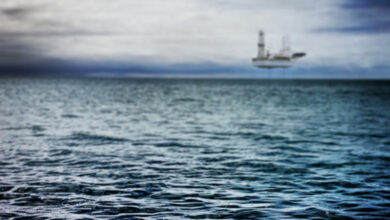

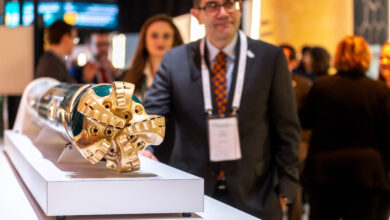
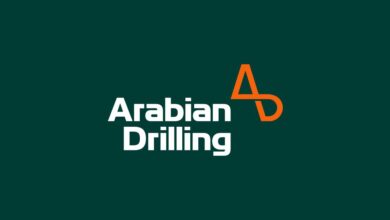
This is MPDC Gabon(Mitsubishi Petrolium) Does anyone handle the jack up or semi market survey/brokering for West Africa offshore operation ? We are in Gabon.
Kind Regards,
Masa
Looking for a semi/jack up for our Gabon Operation. Anybody can handle the market survey including the brokerage ?
Kind Regards,
Masa